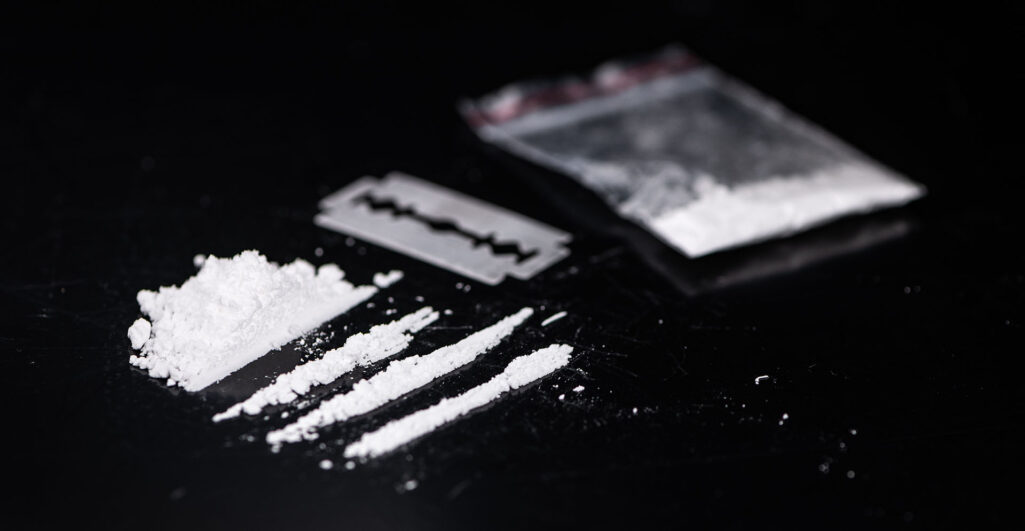Cocaine is often seen as a “party drug,” but for many people, it gradually becomes something they rely on to lift their mood or get through a difficult day. When cocaine use reaches the point where it feels hard to function without it, the first step towards change is a safe and supported cocaine detox.
Detox can feel daunting, especially if you’ve tried to cut down or stop before and found the cravings too strong. But detoxing from cocaine isn’t about willpower alone. It is a medical process designed to give your body the chance to clear out cocaine safely, while helping your brain to rebalance. With the right support, it can be the point where you start to take back your life.
What is cocaine detox?

Cocaine detox is the process of allowing your body to withdraw from cocaine and its by-products while adjusting to life without the drug. Unlike substances such as alcohol or opioids, cocaine does not cause dangerous physical withdrawal symptoms. However, it can trigger intense psychological withdrawal, which can feel overwhelming.
Why is cocaine withdrawal difficult?
Regular cocaine use results in the brain adapting to artificially high levels of a hormone linked to reward and pleasure. The release of this chemical, known as dopamine, is what makes cocaine psychologically addictive, as it creates a temporary ‘high’ when feeling stressed or triggered.
If taken regularly, natural dopamine production decreases. If you suddenly stop taking cocaine, the brain struggles to regulate mood and motivation on its own, which is why withdrawal often feels overpowering.
Cocaine detox withdrawal symptoms
Common symptoms of cocaine withdrawal include:
- Overwhelming cravings for cocaine
- Extreme tiredness and lack of energy
- Anxiety, agitation, or irritability
- Low mood, depression, or hopelessness
- Vivid or disturbing dreams
- Restless sleep or insomnia
- Increased appetite
- Difficulty concentrating or slowed thinking
For many, this sudden crash in dopamine leaves them feeling drained, both physically and emotionally. While not life-threatening, the strength of the cravings and low mood can make it very difficult to stop without support.
At The Haynes Clinic, we know that detox is more than just waiting for cocaine to leave your system; it is the point where your brain and body start relearning how to function without the drug. We’ve combined our personal experiences of detox (we know firsthand what’s genuinely needed to get through this difficult time) with our treatment expertise to create a cocaine detox programme that addresses every aspect of the cocaine withdrawal. This includes understanding the psychological reasons that compel you to use.
This insight, combined with a healthy and healing physical well-being, becomes the foundation for lasting recovery.
The benefits of cocaine detox

Detox is often described as the hardest part of stopping cocaine, but it is also the stage where the biggest changes begin. Once your body returns to a healthy state, you will feel both physical and mental improvements.
Physical benefits
- Better sleep and more energy – disturbed sleep and exhaustion are common during cocaine use, but many people begin to notice improvements within weeks of detox.
- Healthier appetite and weight – cocaine often suppresses appetite, so detox allows eating habits to return to normal and the body to start repairing itself.
- Reduced strain on the heart – regular cocaine use can put pressure on the cardiovascular system, so detox reduces ongoing risks.
Mental and emotional benefits
- Clearer thinking – without cocaine’s effect on dopamine, your brain begins to stabilise, making it easier to focus and make decisions.
- Improved mood regulation – although low mood is common in early withdrawal, most people begin to feel more emotionally balanced after cocaine detox.
- Less anxiety and restlessness – with professional support, detox from cocaine helps reduce the cycle of anxiety driven by breaks in cocaine use.
Recovery benefits
- Reduced risk of relapse – completing detox from cocaine in a safe, structured setting means you are less likely to return to cocaine use during the most vulnerable stage.
- A fresh start – detox gives you the stability to begin therapy and ongoing support, laying the groundwork for long-term recovery from cocaine and other harmful substances.
- Confidence and motivation – many clients at The Haynes Clinic describe detox as the first time they felt change was truly possible.
How to detox from cocaine safely
For many people, the first thought when deciding to stop may be, “I’ll just lock myself away for a few days and get through it.” Wanting privacy or not wanting to burden loved ones is completely understandable, and it may also feel like a way to prove they can do it on their own.
However, cocaine withdrawal is very hard to battle alone, as addiction thrives on isolation and needs a team of support to get through the worst moments. These feelings can quickly become overwhelming, and relapse (returning to cocaine to numb the withdrawal feeling) is common without the right support.
A clinical detox provides a completely different experience:
- Medical assistance – your health is monitored around the clock so that any complications can be managed quickly.
- Therapeutic support – professionals who have been through the process themselves are there to help you cope with anxiety and low mood, letting you know what to expect and encouraging you through.
- Safe environment – you are removed from triggers and access to cocaine, which lowers the risk of relapse.
- Medication when needed – while no drug directly treats cocaine withdrawal, medicines may be offered to ease symptoms such as insomnia or severe anxiety.
- Peer groups – Workshops, mindfulness, process groups or open discussion with other people going through the same experience help prepare and encourage you through withdrawal. We’ve found that most clients arrive resistant to try group therapy, but end up saying it’s the most valuable part, as it helped them finally build trust and therefore push through to a successful recovery.
We offer immediate admission to a safe, supportive environment where you will never have to face withdrawal alone. Our staff are available around the clock, ensuring your health and well-being are protected every step of the way.
Why detox alone won’t help cocaine recovery
Detoxification plays a crucial role in overcoming reliance on cocaine, as it clears your mind and gives your body the space to reset. But without follow-on support, the underlying issues that fuel cocaine use – whether that’s stress, pressure, or emotional struggles – remain. This is why many people relapse soon after detox if nothing else changes.
Cocaine use is often tied to stress or trauma – used to block out unwanted emotion. Withdrawing from this substance clears your mind and allows chemical imbalances to return to normal, but it doesn’t make these challenges disappear. Without ongoing support and encouragement on how to face triggering situations healthily, many people find themselves relapsing (going back to cocaine).
To take control over cocaine use, the most important tool is learning alternative coping mechanisms. Whether that’s breathing exercises or meditation, these are used to stay present, take control over anxiety and resist the urge to turn to drugs. While you are detoxing from cocaine, we guide you through therapy, group work, step-work and relapse-prevention strategies. This is where the real change happens. Our aim is not just to help you stop using, but to help you build a healthier, more balanced life where you no longer need cocaine to cope with stressful situations.
If you are supporting a loved one, it can be encouraging to remember that detox is not the end of the relationship with cocaine, but the beginning of a healthy one. With the right care in place after withdrawal, recovery becomes not only possible but also sustainable.
Next steps: where to get cocaine detox
When you are ready to begin cocaine detox, the most important choice is where to do it. Some people look to NHS services, but long waiting lists and limited availability can make it difficult to get the right support at the right time. Others turn to charities or community organisations, but resources are often stretched, and medical supervision is not always available.
At The Haynes Clinic, we believe that detox should not only be safe and immediate, but also effective. While abstinence from cocaine is the start, what makes our approach unique is that we combine a range of recovery tools that start from the moment you arrive, to ensure the detox is effective long-term and not just a temporary fix to cocaine abuse.
We understand firsthand what you are experiencing and can offer genuine empathy, as well as expert guidance, helping you reach realistic goals to put you on the path to long-term recovery. We also provide round-the-clock medical monitoring, therapeutic support, and access to medication when needed, all in a calm and private environment.
In addition, all clients have access to a weekly therapy day at our clinic for a whole year after treatment, to ensure you have extra support easing back into life without the comfort of cocaine.
If you’re ready to detox from cocaine, call our welcoming team for understanding and confidential guidance on how to take the next step.
Cocaine detox FAQs
Is cocaine detox painful?
Cocaine detox is not usually physically painful, but it can be emotionally tough. Symptoms such as exhaustion, low mood, and cravings can feel overwhelming. With the right support, these can be managed safely and made more bearable.
How long does cocaine detox take?
Most people feel the first withdrawal symptoms within hours of stopping. The most intense phase typically lasts a few days to a week, but some effects, such as cravings or low mood, may persist for weeks afterwards. At The Haynes Clinic, we support you throughout the process for as long as you need.
Can I detox from cocaine at home?
While it might seem possible to do it alone, the cravings and psychological symptoms often become too strong without support and can lead to relapse. A clinical setting provides safety, care, and the reassurance that someone is always there to help if things become too difficult.
Is there medication for cocaine detox?
There is no single medication that removes cocaine withdrawal completely, but medicines can help with symptoms such as anxiety, depression, or insomnia. At The Haynes Clinic, we assess your needs individually and may prescribe where it will make the process safer and more comfortable.
What happens after cocaine detox?
Detox is the first step. While your body clears cocaine, working on the reasons behind your use and developing healthier ways to cope is just as important. These are then used in practice once the programme is complete.
That’s why we combine detox with therapy, group support, and relapse-prevention planning so that you can build lasting recovery.
